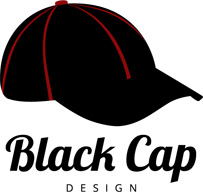“I found this really cool image online and I want to use it on my website.”
This is something we hear quite a bit when we’re designing or updating sites for our clients. I had a professor at Fleming College when I was studying Web Design there who went to great lengths to stress the importance of taking copyright issues seriously. I took her advice, and in turn advise my clients to take it seriously as well.
In the early days of the Web, breaking copyright rules – reproducing and posting other people’s written content and images without consent – wasn’t taken too seriously because really, who would know?
Then, along came Google. Suddenly it was dead-easy to search the Web to see if someone was using your written content without permission. But images? Bah! Who will know? Well…
About a year ago, purely by accident, I stumbled upon Tineye. TinEye is a “Reverse Image Search” engine developed by Idée Inc., a company based in Toronto, Ontario. (Toronto? That’s just a hop, skip & jump from here. How cool is that!?) TinEye allows you to upload an image, which it compares to billions of images it has scanned from the Web – kind of like the CSI fingerprint scan we’ve all seen on TV. It will look for matches to your image and will post links to their various locations on the Web. Try it, it’s free!
Since finding TinEye, I have used it several times to verify that ‘yes, that image is indeed protected by copyright’ and advise a client that, ‘no, it’s not a good idea to use it without permission’. TinEye is also a great tool to find out if it’s possible to purchase the right to use the image from an authorized royalty-free stock image repository.
An authorized what? Royalty-free images are a relatively inexpensive alternative to hiring an artist or photographer to create customized images for you. They are images created by a professional graphic artist or photographer and made available for a range of specific uses, for a set fee. iStockPhoto, another Canadian company (based in Calgary, and subsequently bought out by Getty Images), was one of the first royalty-free stock image repositories – basically a huge online library of royalty-free stock images, where you can search for and purchase the right to use images for your website.
There are a number of really good (easy-to-use, reputable and affordable) royalty-free stock image repositories online. Here are a few worth checking out:
Where was I? Oh yeah. Guess who else is using reverse image search technologies like TinEye? Stock image companies – like the ones listed above – as well as graphic artists and professional photographers also conduct reverse image search in an effort to restrict the unauthorized use of their material.
So, in a nutshell, if you’re looking for images to complement your written content or jazz up the look of your site or blog, play it safe and make sure you have permission to use those images. Sometimes it’s as simple as contacting the photographer or graphic artist and asking for permission to use their work in exchange for crediting the source.
Here are a few additional resources worth checking out: (make sure you read the fine print that accompanies each image)
Free Stock Photos – StockXCHNG
Free Media Files – WikiMedia Commons
When working with a Web Developer, consider asking:
- advice for obtaining images – where to look, image specifications (including optimal file types, dimensions and file size), and cost estimates
- if photography / graphic art services are available, or if a referral can be made to a graphic artist or photographer
- if image search is offered and if so, is it included in the development cost or does it represent an additional cost
- the cost for image prep (resizing, editing, cropping and optimizing) to get the most out of your images
If you have questions about the search, purchase and use of images, please contact us at . Happy image search!
